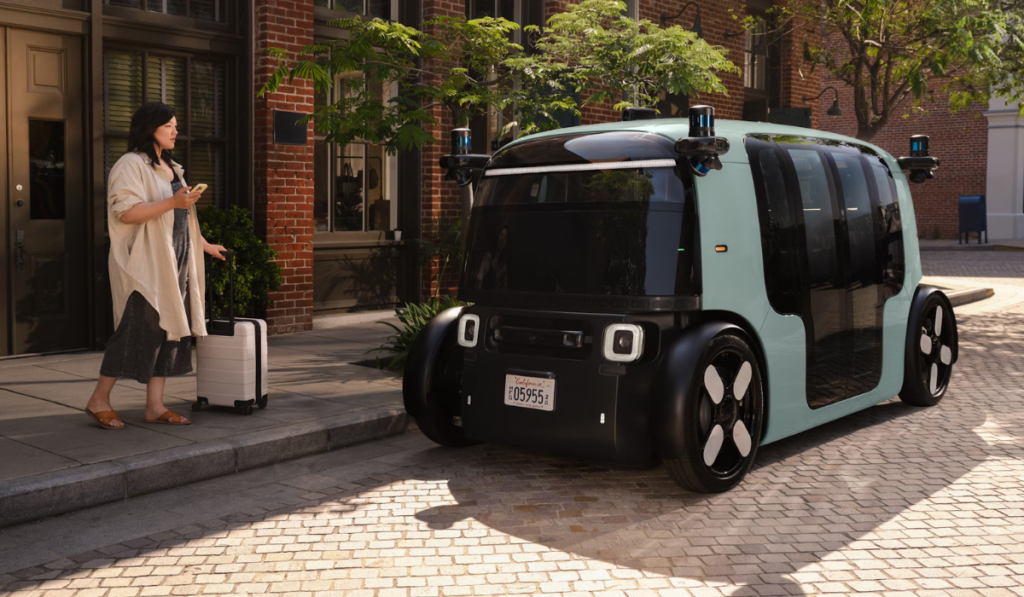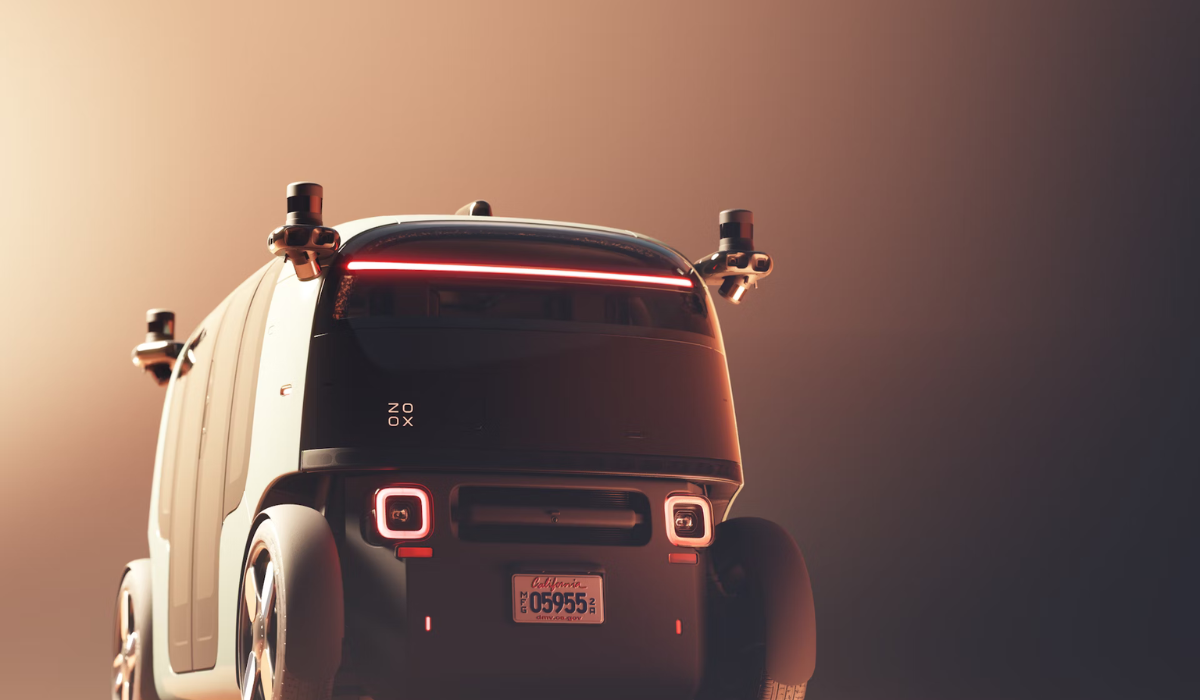Zoox, the Amazon-owned autonomous vehicle (AV) company, has officially entered the robotaxi market with a unique, purpose-built vehicle, launching in San Francisco and Las Vegas. This move places Zoox in direct competition with major players like Waymo, which just secured a substantial $5.6 billion funding round led by Alphabet, reinforcing its hold on the autonomous transport market. Meanwhile, Aurora Innovation, another AV leader, has announced it will delay its self-driving truck launch to 2025, underscoring the challenges in rolling out large-scale autonomous technology.

Zoox’s robotaxi, which took years of development and testing, stands out with a futuristic, bidirectional design devoid of traditional car controls, such as a steering wheel or driver’s seat. The interior is configured for passenger comfort, with four inward-facing seats designed to foster a shared experience for users. The vehicle’s advanced sensor suite, which includes LiDAR, radar, and cameras, aims to provide reliable navigation in busy urban areas, marking a significant departure from the retrofitted cars used by competitors like Waymo. According to Zoox CTO Jesse Levinson, the vehicle was designed for full autonomy in challenging environments, a decision that has positioned Zoox uniquely within the AV sector.
Zoox’s entry raises several competitive questions. Waymo, which has operated in San Francisco and Phoenix, has taken a more gradual approach, scaling through partnerships and a focus on regulatory compliance. With its recent funding, Waymo plans to bolster its mapping and navigation technology, a key component of its AV ecosystem. Some experts predict Zoox’s entry may pressure other ride-hailing services to innovate in order to compete effectively. Industry insider Vinod Khosla suggests, however, that urban transportation may soon shift toward alternative solutions, such as autonomous pods on dedicated paths, rather than robotaxis, which face complex city environments and evolving safety regulations.
Aurora’s delay in launching its self-driving trucks illustrates another challenge for AV companies. Scheduled for a 2025 rollout, Aurora cited the technical and regulatory complexities involved in commercializing autonomous trucking technology. The postponement highlights a key challenge within the industry: while significant progress has been made in AV passenger vehicles, the logistics for larger, long-haul trucks continue to be an obstacle.
With Zoox’s launch, the race for AV supremacy intensifies. Zoox’s robotaxi marks a critical step forward in autonomous transport, with its pioneering design offering a glimpse into the future of urban mobility. Meanwhile, Waymo’s recent funding round allows it to strengthen its foothold in the market, while Aurora’s postponed truck plans underscore the hurdles still faced by AV technology in commercial settings. As these companies push forward, the landscape of autonomous transportation is set to transform rapidly in the coming years.












